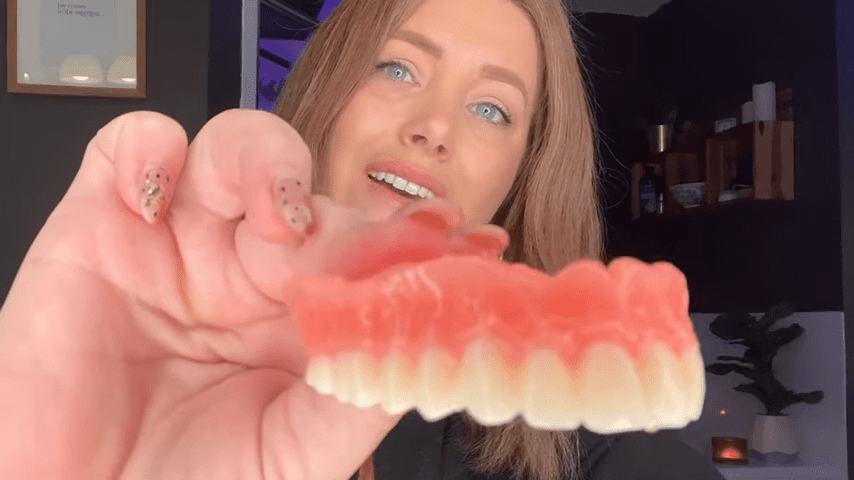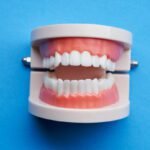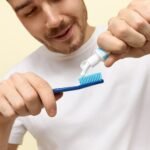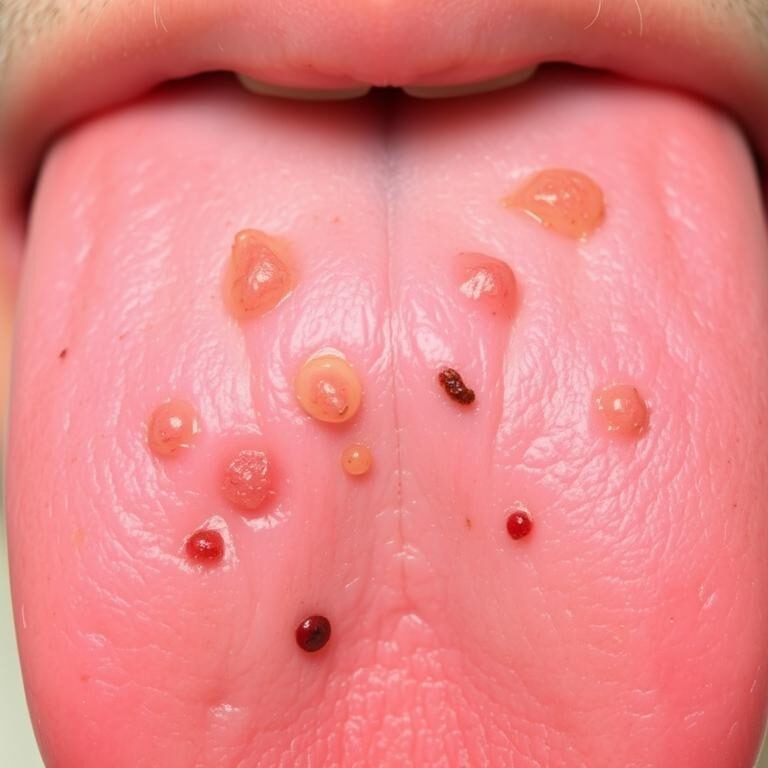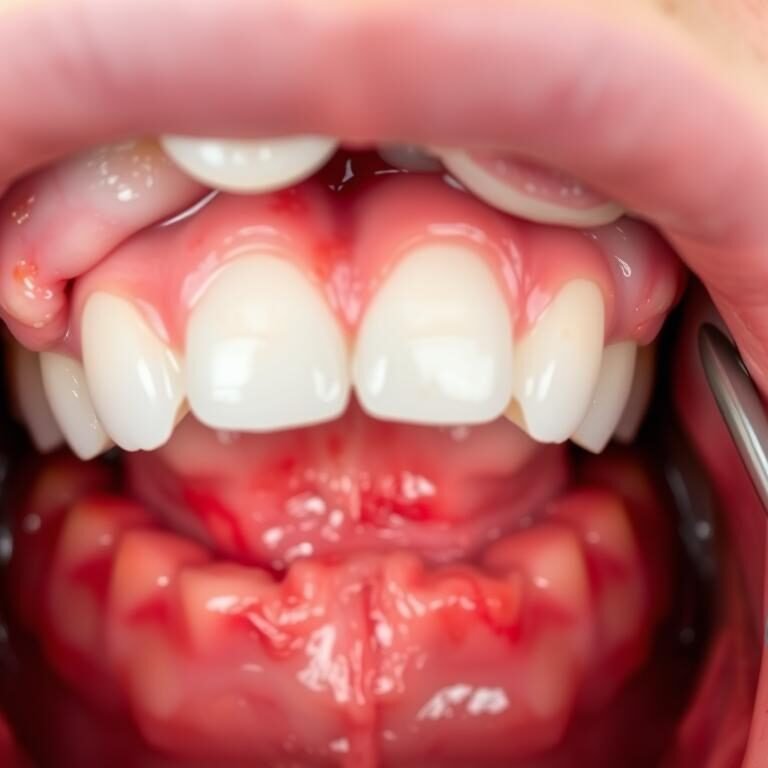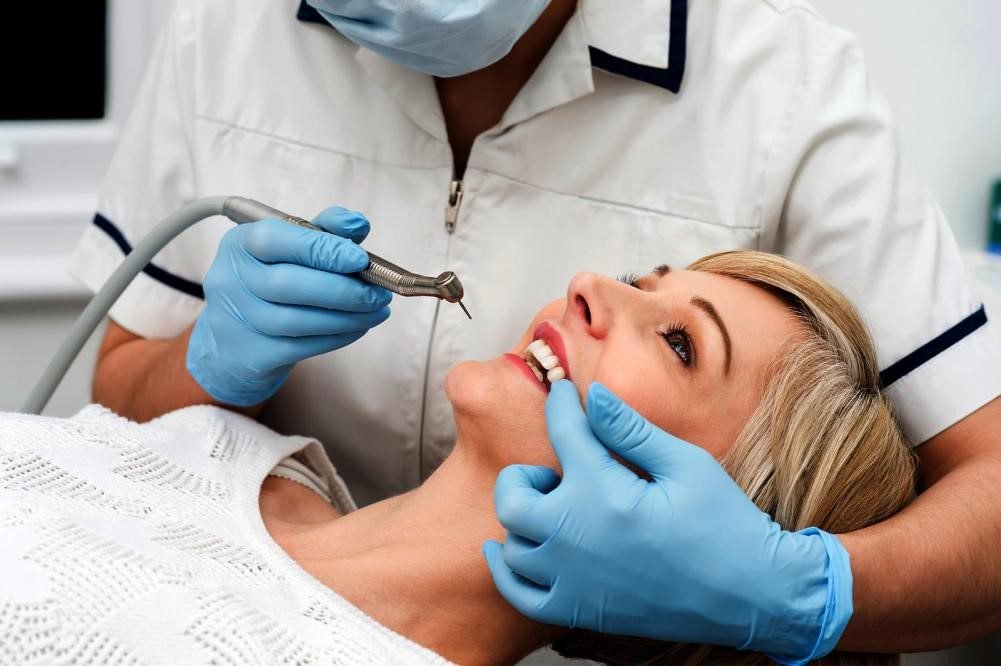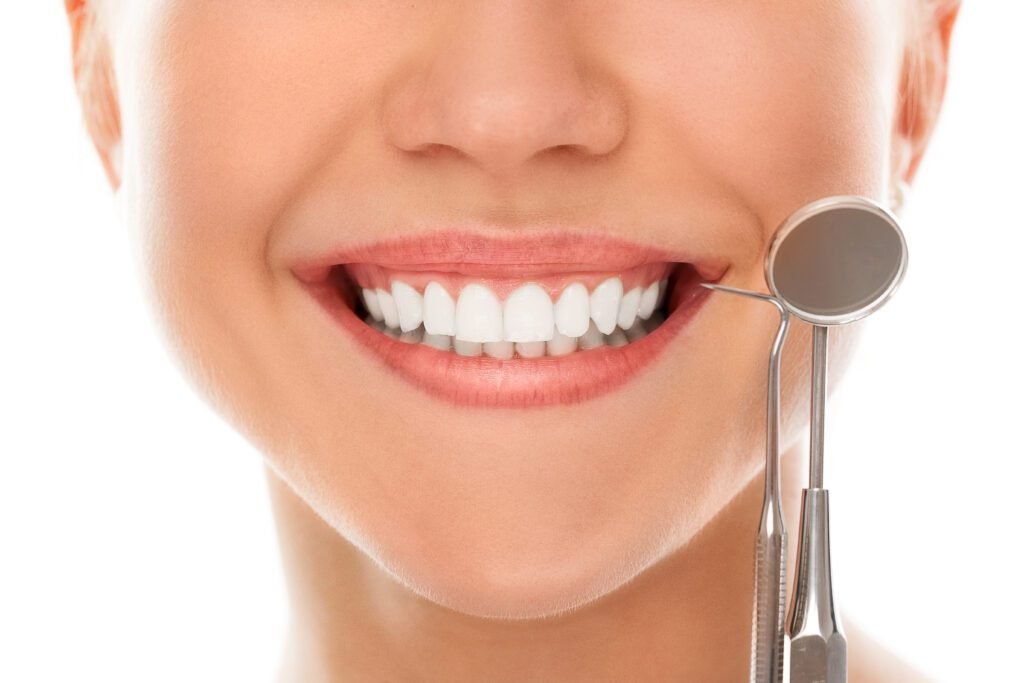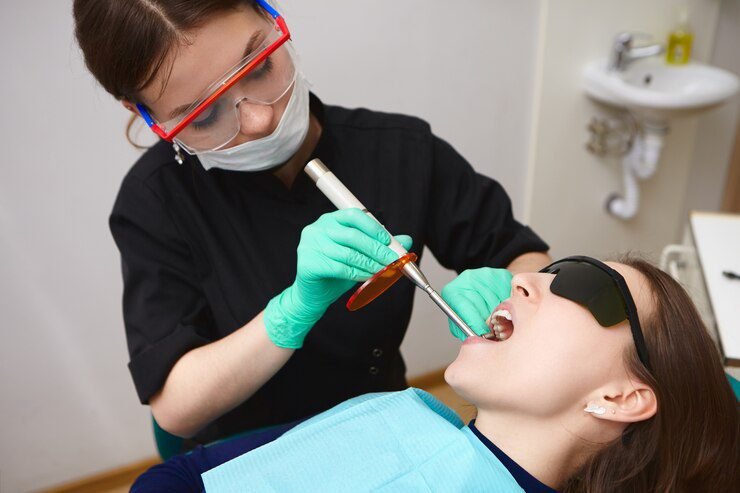Table of Contents
Proper Cleaning Techniques for Dentures
Regular cleaning of dentures is essential to maintain good oral hygiene and prevent potential oral health issues. To properly clean dentures, start by removing them from the mouth and rinsing them under lukewarm water to remove any food particles and debris. Using a soft-bristled brush specifically designed for dentures, gently brush all surfaces of the dentures, including the crevices and grooves, to remove plaque and bacteria buildup.

Next, it is important to use a mild denture cleaner or mild dish soap to further cleanse the dentures. Avoid using abrasive cleaners or harsh chemicals as they can damage the dentures. Additionally, soaking the dentures in a denture cleaning solution or a mixture of water and vinegar can help eliminate stains and odors. Remember to rinse the dentures thoroughly with water after cleaning to remove any residue from the cleaning products. This meticulous cleaning routine should be performed at least once a day to ensure optimal oral health and the longevity of your dentures.
The Importance of Regular Denture Cleaning
Proper cleaning of dentures is essential in maintaining good oral hygiene and overall health. Regular cleaning helps to remove food particles, plaque, and bacteria that can accumulate on dentures throughout the day. Neglecting to clean dentures regularly can lead to unpleasant odors, stains, and an increased risk of oral infections. It is recommended to clean dentures at least twice a day to ensure optimal cleanliness and freshness.
Failure to clean dentures regularly can also result in the buildup of harmful bacteria, which can cause irritation to the gums and oral tissues. These bacteria can contribute to conditions such as gingivitis and oral thrush, impacting not only oral health but also overall well-being. By incorporating regular denture cleaning into your daily routine, you can help prevent these issues and maintain a healthy mouth.
Choosing the Right Cleaning Products for Dentures
When it comes to choosing the right cleaning products for dentures, it is essential to opt for products that are specifically designed for denture care. Avoid using regular toothpaste or household cleaners as they can be too abrasive and damage the delicate surface of dentures over time. Look for mild, non-abrasive denture cleaning solutions that are gentle yet effective in removing bacteria, stains, and food particles.

Furthermore, it is recommended to use a soft-bristled denture brush or a designated denture cleaning brush along with the cleaning products. These brushes are designed to be gentle on the material of the dentures while still providing thorough cleaning. Avoid using hard-bristled brushes or abrasive materials that can scratch or wear down the surface of the dentures. Remember, gentle cleaning with the right products and tools is key to maintaining the longevity and appearance of your dentures.
How Often Should Dentures be Cleaned?
Regular cleaning of dentures is crucial to maintaining oral hygiene and preventing oral health issues. Dentures should be cleaned at least twice a day, just like natural teeth, to remove plaque, food particles, and bacteria that can accumulate on the surface. Proper cleaning can help prevent bad breath, gum irritation, and infections that may arise from unclean dentures.
It is recommended to clean dentures in the morning and before bed to ensure a thorough removal of debris and bacteria. Additionally, denture wearers should rinse their dentures after meals to prevent food particles from sticking and causing discomfort or odors. By adhering to a strict cleaning routine, individuals can prolong the lifespan of their dentures and maintain optimal oral health.
Avoiding Damage During Denture Cleaning
When cleaning your dentures, it is crucial to handle them with care to avoid any potential damage. Dentures are delicate and can be easily scratched or broken if not cleaned properly. Avoid using harsh abrasive materials such as stiff-bristled brushes or abrasive toothpaste, as these can cause irreversible damage to the surface of your dentures.

Additionally, be cautious when handling your dentures during the cleaning process. Always work over a folded towel or a basin of water to prevent them from breaking if accidentally dropped. Remember to clean your dentures gently and thoroughly to ensure their longevity and functionality. By following these simple guidelines, you can maintain the quality of your dentures and keep them in good condition for an extended period.
Rinsing Dentures After Meals
To maintain optimal oral health and ensure the longevity of your dentures, it is essential to rinse them thoroughly after meals. Food particles can easily get trapped in the crevices of dentures, leading to bacterial buildup and potential oral health issues. Rinsing with lukewarm water can help dislodge any food debris and prevent the development of plaque and bacteria.
Additionally, rinsing dentures after meals can help remove acids and sugars that may be left on the denture surfaces. These residues can contribute to the development of cavities and gum disease if not properly cleaned. By incorporating this simple yet crucial step into your daily denture care routine, you can help protect both your oral health and the integrity of your dentures.
Proper Storage of Dentures
Proper storage of dentures is crucial in maintaining their durability and hygiene. When not in use, dentures should be kept moist to prevent them from drying out and losing their shape. Placing dentures in a denture cleaning solution or plain water can help retain their moisture and prevent warping or cracking. It is advisable to avoid using hot water or leaving dentures in direct sunlight, as extreme temperatures can damage them.
Additionally, dentures should be stored in a clean container specifically designed for that purpose. Ensure the container is not airtight as this can lead to bacterial growth. Regularly cleaning the storage container with a mild soap and water solution is essential to prevent the build-up of harmful bacteria. By following these storage practices, you can prolong the lifespan of your dentures and maintain optimal oral health.
Cleaning Denture Adhesives
When it comes to cleaning denture adhesives, it is essential to follow the proper techniques to maintain both the adhesives’ effectiveness and the overall cleanliness of the dentures. Begin by removing the dentures from your mouth and gently peeling off any remaining adhesive with your fingers. Avoid using harsh abrasives or chemicals that may damage the dentures or the adhesive material.
After removing the adhesive residue, wash the dentures thoroughly with a mild denture cleanser and a soft-bristled brush. Pay special attention to cleaning the areas where the adhesive was applied to ensure that no residue remains. Additionally, it is crucial to rinse the dentures well with lukewarm water to eliminate any remaining cleaner or debris before placing them back in your mouth. Properly cleaning denture adhesives not only ensures the longevity of the dentures but also contributes to maintaining good oral hygiene.
| Cleaning Method | Description |
|---|---|
| Warm Water | Rinse the denture adhesive thoroughly under warm water. |
| Gentle Brushing | Use a soft-bristled toothbrush or denture brush to gently scrub the adhesive residue. |
| Denture Cleanser Tablets | Soak the denture in a denture cleanser solution following the manufacturer’s instructions. |
| Vinegar Solution | Create a solution of water and vinegar (1:1 ratio) and soak the denture for a few minutes, then brush gently. |
| Baking Soda Paste | Make a paste of baking soda and water, apply it to the adhesive, and gently scrub with a toothbrush. |
| Denture Adhesive Remover | Use commercially available denture adhesive removers according to the product’s instructions. |
Removing Stains from Dentures
When it comes to removing stains from dentures, it is essential to be diligent in maintaining the appearance and hygiene of your dental prostheses. Stains on dentures can be caused by various factors such as consuming colored foods, beverages, or tobacco products. To effectively remove stains, it is recommended to use denture-specific cleaning products that are gentle yet effective in lifting discoloration without damaging the denture material. Additionally, regular brushing with a soft-bristled denture brush and soaking in a denture cleaner can aid in removing stubborn stains and keeping your dentures looking clean and bright.
Furthermore, for tough stains that do not easily come off with regular cleaning methods, seeking professional assistance from your dentist is recommended. Dentists have access to specialized cleaning equipment and solutions that can safely and thoroughly remove stains without compromising the integrity of the dentures. By addressing stains promptly and following proper cleaning techniques, you can maintain the aesthetic appeal of your dentures and ensure optimal oral hygiene for a confident smile.
Regular Dental Check-ups for Denture Wearers
Regular dental check-ups are essential for denture wearers to ensure the overall health and fit of their dentures. These appointments allow the dentist to assess the condition of the dentures, oral tissues, and gums. They can also detect any potential issues early on, such as ill-fitting dentures, oral infections, or signs of oral cancer. During these check-ups, the dentist may also provide professional cleaning services to remove plaque and tartar buildup, which can contribute to gum disease and other oral health problems.
Furthermore, regular dental check-ups for denture wearers play a crucial role in preventing complications and ensuring the longevity of both the dentures and the wearer’s oral health. Dentists can offer valuable advice on proper denture care techniques, recommend adjustments or replacements when necessary, and address any concerns or discomfort experienced by the patient. By staying proactive with routine dental visits, denture wearers can maintain optimal oral health and enjoy the benefits of a confident smile and comfortable fitting dentures.
Preventing Build-up of Bacteria on Dentures
In the quest for optimal denture hygiene and overall oral health, preventing the accumulation of bacteria on dentures is paramount. The warm and moist environment provided by wearing dentures creates an ideal breeding ground for bacteria, which can lead to various oral health issues if not properly managed. Regular cleaning and disinfection of dentures are essential steps in minimizing bacterial growth and safeguarding oral health.
One effective way to prevent bacterial build-up on dentures is to thoroughly brush them after each meal and before bedtime. Use a soft-bristled brush and a mild denture cleaner to gently remove food particles, plaque, and bacteria. Additionally, soaking dentures in an antimicrobial solution or effervescent denture tablets can further disinfect them and inhibit bacterial growth. Maintaining a consistent cleaning routine will not only prevent bacterial accumulation but also contribute to the longevity and functionality of your dentures.
Proper Brushing Techniques for Dentures
To effectively clean dentures, it is crucial to use the right brushing techniques. When it comes to brushing dentures, it is recommended to use a soft-bristled brush specifically designed for cleaning dentures. Hard-bristled brushes can be harsh on the denture material, leading to scratches and potential damage. By using a gentle, circular motion, you can remove food particles and plaque without causing harm to the dentures.
Additionally, it is important to avoid using toothpaste when brushing dentures, as many toothpaste brands contain abrasive ingredients that can scratch the denture surface. Instead, opt for a mild dishwashing liquid or denture cleaning solution. These products are specially formulated to clean dentures effectively while being gentle on the material. Remember to thoroughly rinse the dentures after brushing to ensure all cleaning agents are completely removed.
| Step | Technique |
|---|---|
| 1. Rinse | Rinse your dentures thoroughly under running water to remove any loose food particles. |
| 2. Brush | Use a soft-bristled toothbrush or denture brush to gently scrub all surfaces of the dentures. |
| 3. Use Paste | Apply a mild denture cleaner or non-abrasive toothpaste to the brush. |
| 4. Brush Gently | Brush the dentures using gentle circular motions, focusing on removing stains and bacteria. |
| 5. Avoid Damage | Be careful not to scrub too vigorously to avoid scratching or damaging the dentures. |
| 6. Clean Thoroughly | Ensure all areas, including crevices and grooves, are thoroughly cleaned. |
| 7. Rinse Again | Rinse the dentures once more under running water to remove any remaining cleaner or toothpaste. |
| 8. Soak Overnight | If recommended, soak the dentures in a denture cleaning solution overnight for extra hygiene. |
| 9. Rinse Again | Rinse the dentures thoroughly before placing them back into your mouth. |
Handling Dentures with Care
When it comes to handling dentures, it is essential to exercise caution and care to avoid any potential damage. Dentures are delicate oral appliances that require gentle handling to maintain their longevity and functionality. Always handle your dentures with clean hands to prevent any transfer of harmful bacteria or debris.
While cleaning or handling your dentures, it is advisable to use a soft-bristle toothbrush or denture brush to avoid scratching the surface of the dentures. Avoid using harsh chemicals, hot water, or abrasive cleaners as they can damage the dentures and compromise their fit. Additionally, be mindful of where you place your dentures when not in use to prevent accidental breakage or misplacement. Proper handling of dentures is crucial in ensuring their durability and your oral health.
Replacing Dentures When Necessary
When it comes to dentures, it’s essential to understand the signs that indicate the need for replacement. Over time, dentures can wear down, become loose, or develop cracks, affecting their functionality and fit. If you notice persistent discomfort, changes in how your dentures fit, difficulty chewing, or visible damage to the dentures, it may be time to consider replacing them.
While regular maintenance and care can extend the lifespan of dentures, it’s crucial to consult with your dentist for an expert evaluation. A dentist can assess the condition of your dentures, recommend the best course of action, and ensure that your new dentures fit properly and function effectively. By staying proactive and addressing any issues promptly, you can maintain optimal oral health and overall well-being.
Consulting a Dentist for Denture Care Advice
It is highly recommended that individuals with dentures seek advice from their dentist on proper care techniques. Dentists are trained professionals who can provide valuable insights on maintaining the cleanliness and integrity of dentures. By consulting a dentist for denture care advice, individuals can receive personalized recommendations tailored to their specific oral health needs, ensuring that their dentures remain in optimal condition for longer periods.
Additionally, dentists can offer guidance on preventive measures to avoid common issues associated with dentures, such as irritation, inflammation, and bacterial infections. Regular consultations with a dentist can help denture wearers address any concerns or discomfort they may be experiencing, leading to improved overall oral health. By following the advice of a reputable dentist, individuals can enhance the longevity and effectiveness of their dentures, promoting better oral hygiene practices and maintaining a confident smile.
Why is it important to have regular dental check-ups as a denture wearer?
Regular dental check-ups are important for denture wearers to ensure that their dentures fit properly, to check for any signs of damage or wear, and to monitor the overall health of their gums and mouth.
Can dentures be left in overnight?
It is generally recommended to remove dentures at night to give your gums and mouth a chance to rest. However, if your dentist recommends leaving them in overnight for a specific reason, be sure to follow their advice.
How can I prevent bad breath while wearing dentures?
Proper cleaning and care of your dentures, along with regular brushing of your gums and tongue, can help prevent bad breath while wearing dentures. Additionally, staying hydrated and avoiding certain foods can also help.
Are there special brushes or tools for cleaning dentures?
Yes, there are specialized denture brushes and cleaning tools available that are designed to effectively clean dentures without causing damage. Your dentist can recommend the best products for your specific dentures.
What should I do if my dentures become loose or uncomfortable?
If your dentures become loose or uncomfortable, it is important to see your dentist as soon as possible. They can make adjustments or repairs to ensure that your dentures fit properly and comfortably.

